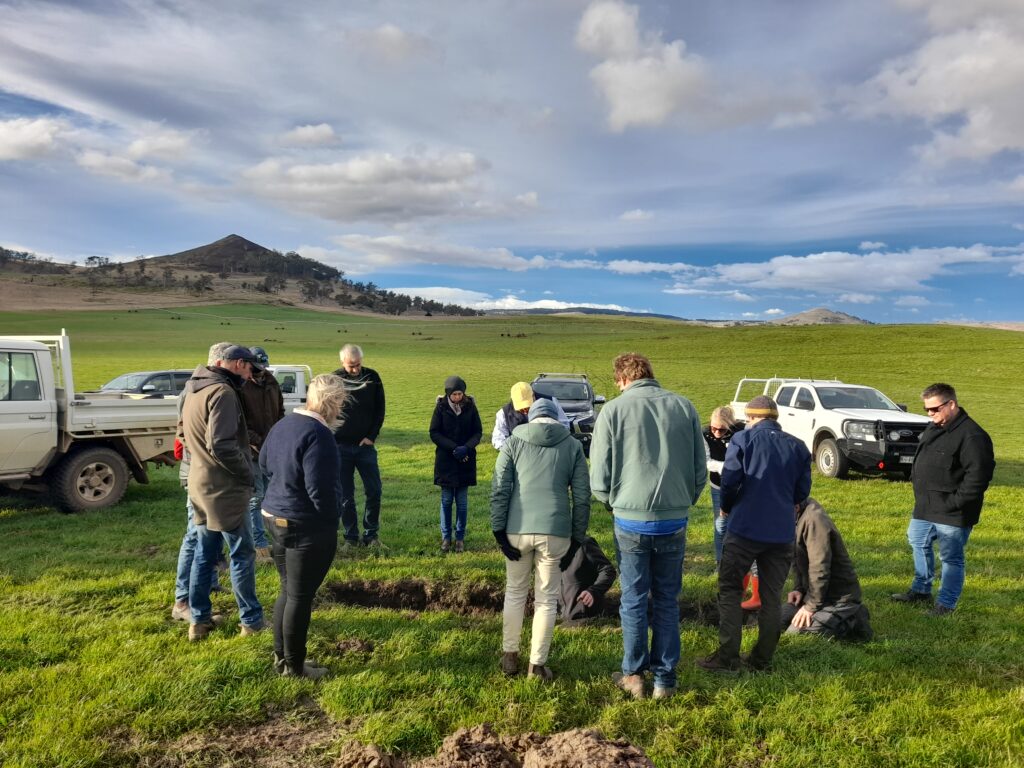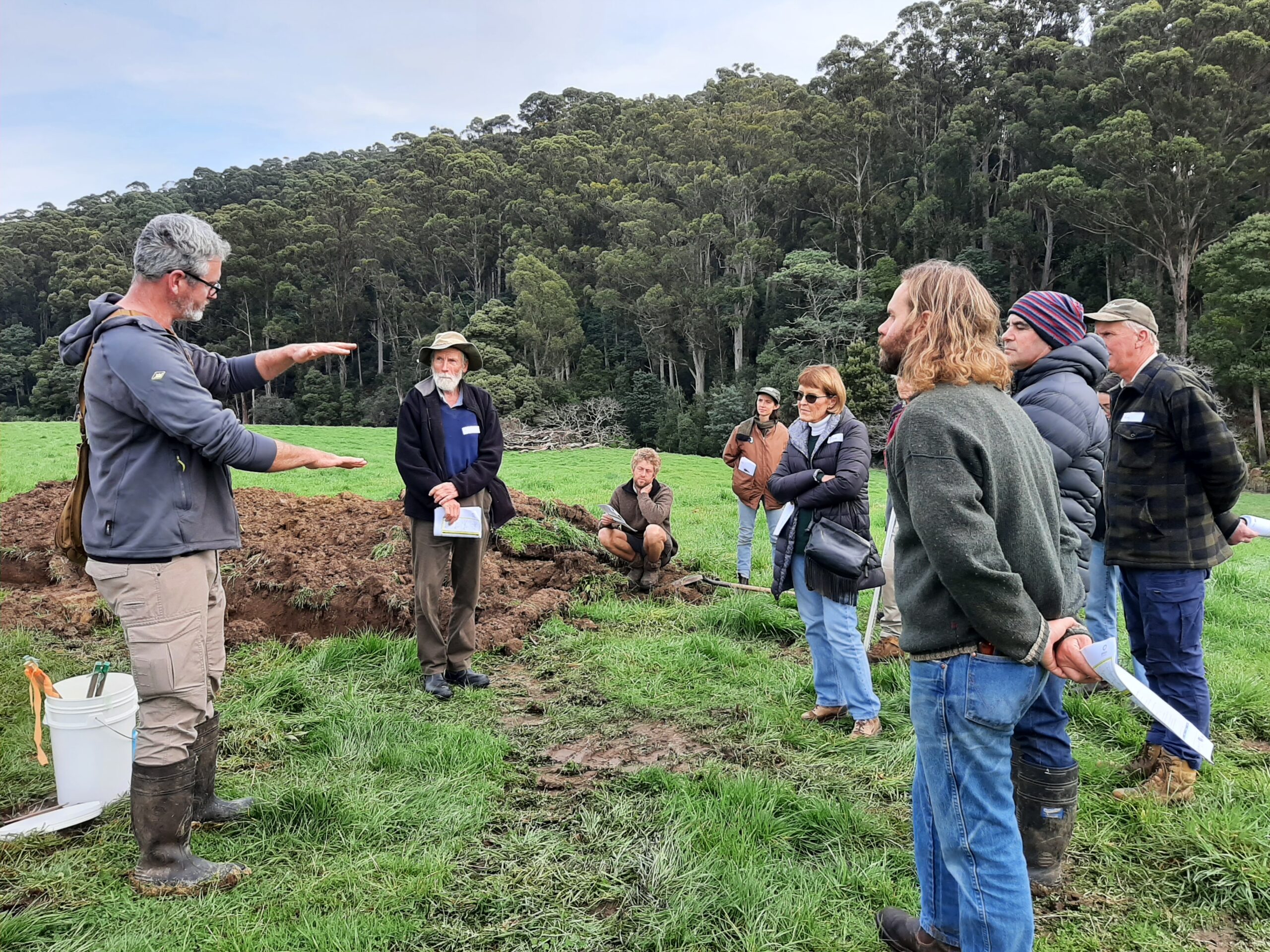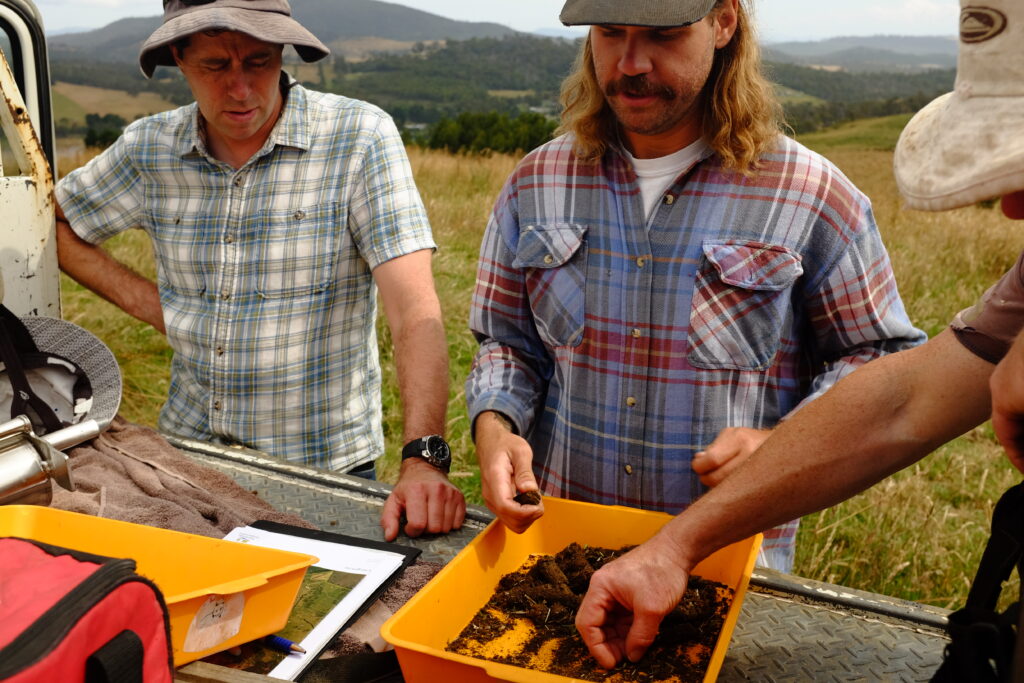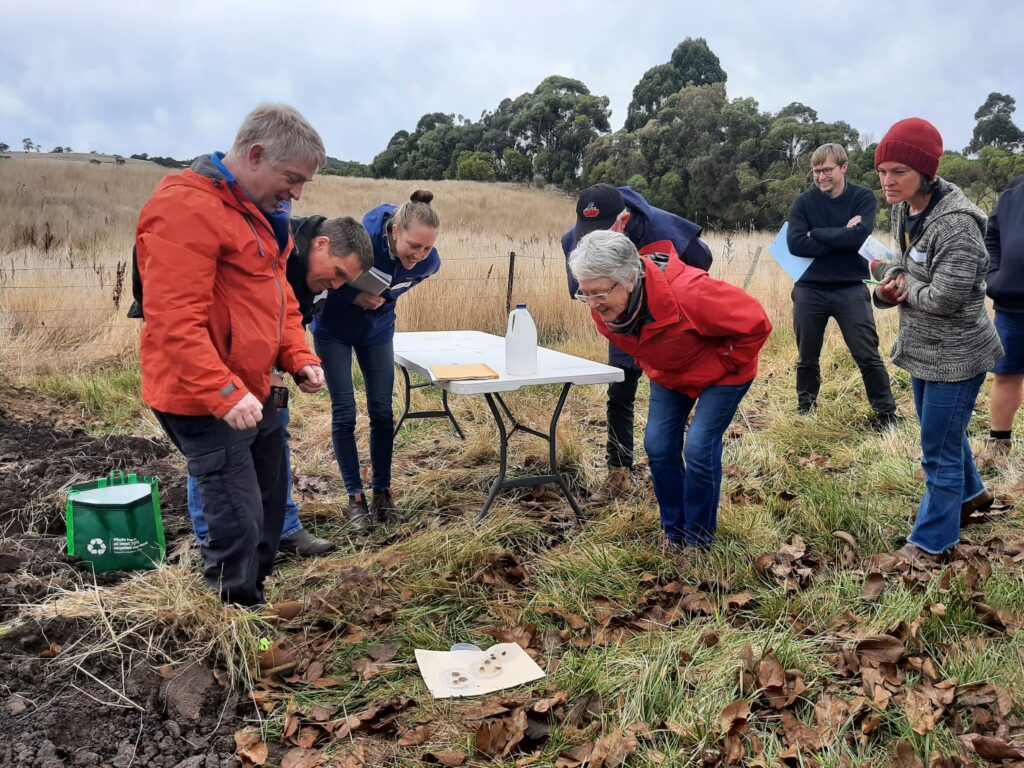The Tasmanian NRM’s Soil Extension Project has achieved remarkable success in raising awareness about soil health and promoting sustainable land management practices across Tasmania. Running from June 2022 to June 2023, this statewide initiative helped landholders to sustainably manage soil condition and to improve access to information on soil health in the Tasmanian production landscape. One crucial aspect emphasized throughout the project was the significance of maintaining groundcover, which enhances soil resilience to climate extremes and improves the natural values of the land.

Funded by the Australian Government’s National Landcare Program, the Soil Extension Project was implemented across the state, and Soil Extension Officers were appointed in each of the three NRM offices. These officers served as a valuable point of contact for landholders in their respective regions and actively engaged with grower networks. Throughout the project’s duration, numerous objectives were achieved, including:
Soil Sampling and Interpretation:
- Assistance in collecting and interpreting 90 soil samples.
Development of Decision Support Tools:
- In collaboration with local industry consultants three decision support tools were developed and published, providing valuable resources for landholders:
Workshops and Field Days:
- Organised 24 workshops and field days, with eight events in the Southern region (Huon Valley, the Greater Hobart region, Southern Midlands, Coal Valley and Tasman Peninsula). Topics were chosen based on community feedback and covered soil health, soil carbon, soil management and soil biology. The events were facilitated by a mix of local consultants and researchers, creating a conducive environment for knowledge sharing and building.
During the extension events, attendees gained knowledge on the interactions between soil health and production outcomes and were trained in low-tech methods related to assessment of soil health on their own land. Methods included:
- Cotton Underwear Test:
- Event host buried a set of cotton underwear and observed its breakdown after two months. This exercise provides an indication of microbial activity, allowing for comparisons across different areas of the property.
- Field Assessment of Soil Health:
- Attendees performed a field assessment of soil health, evaluating various factors such as soil texture, structure, porosity, colour, mottling, earthworm population, rooting depth, surface conditions and erosion. Scores ranging from 0 (poor) to 2 (good) were assigned based on a subjective assessment. This hands-on approach empowered participants to do their own soil assessments based on simple tests.
Feedback from attendees demonstrated increased confidence in conducting their own soil assessments to identify limitations to productivity and explore potential management options.
“[I was surprised] … how much soil can vary across paddocks in a relatively short distance. [In the future] … I will monitor the soil temperature and soil carbon, and bury my undies to observe soil activity!” – Attendee feedback
The successful completion of the project was made possible by the engagement and support of local and regional grower networks, as well as the individuals who actively participated in the extension events. It is the hope that the Soil Extension Project’s impact extends beyond its duration, leaving informed landholders equipped with the knowledge and tools necessary for extending sustainable land management practices across Tasmania.


